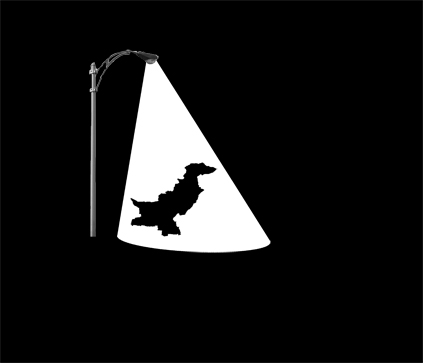
On Jan. 25th, 2015, an estimated 80% of Pakistan was plunged into darkness when a rebel attack on the state power grid in the sparsely populated Baluchistan province resulted in the destruction of a key transmission line. The attack comes as the third in a two week period and represents just one of the struggles that Pakistan is facing with the revitalized rebel effort in the region.
While the rebels did indeed cause this latest incident, they cannot be given all the blame for the dilapidated and unreliable power grid in the country. For years, Pakistan has had recurring problems with their aging system, resulting in regular blackouts around the country and highlighting the failure of the Pakistani government to preserve the state run energy companies. Most recently, Prime Minister Nawaz Sharif promised solutions to the all too familiar problems that have plagued the country during his electoral campaign, but he has yet to resolve them.
 Experts attribute the state of the electric grid in Pakistan to actions by the government such as artificially lowering electricity costs for residents, as well as widespread electricity theft by the public and military, which leaves the state-run (but underfunded) power companies unable to keep up the already aging and failing infrastructure of the country. The state of the system often leaves areas without power for up to 20 hours at a time, with conditions worsening in the summer months as power consumption increases.
Experts attribute the state of the electric grid in Pakistan to actions by the government such as artificially lowering electricity costs for residents, as well as widespread electricity theft by the public and military, which leaves the state-run (but underfunded) power companies unable to keep up the already aging and failing infrastructure of the country. The state of the system often leaves areas without power for up to 20 hours at a time, with conditions worsening in the summer months as power consumption increases.
In the 1960’s much of Pakistan’s budding energy industry relied on hydroelectric, thermal, and later nuclear power stations to provide the bulk of the countries electricity. Over time, this dominance of renewable energy has fallen to the wayside, and a shift in policy has left Pakistan reliant on foreign fossil fuels for the majority of the power produced in the country. Policy in 2001 brought about by the standing military government only worsened the current state of the country’s electric grid by, unlike previous courses of policy, failing to increase the energy production of the country (which had diminished over the years) but increasing the power consumption of the country.
Since 2005, numerous plans have been put into action by the Pakistani government, the first of which focused on privatizing the energy sector, with the intent to increase energy production in the country by 50% by 2013. But that action was not enough, and by 2012, the country had nationalized the energy sector once again, the result of the private companies failure to meet the total demand of the growing energy consuming segment of the population and the promises of the government in 2005.
This history of poor maintenance and policy has left the energy sector in shambles, unable to meet the production demands, and using outdated and unreliable systems for the transmission of that power. Unlike more developed countries such as the US or many Western European nations, Pakistan is extremely susceptible to such widespread blackouts, especially when coupled with these added faults.
These failures characterize a familiar struggle for many developing nations today, reliant on energy production and consumption for daily function and production, but unable to meet the requirements created by citizens and industry alike. For these countries, the experience and successes of more developed nations can only do so much good, and when offset by corruption, theft, poor policy, poor maintenance and expansion of the grid, and political or social unrest, (as is often the case in these countries) it is only a matter of time before such a failure can be expected.
For more information visit the following websites:
http://www.bbc.com/news/world-asia-30981338
http://www.nbcnews.com/news/world/massive-pakistan-power-blackout-leaves-80-percent-darkness-n292976



